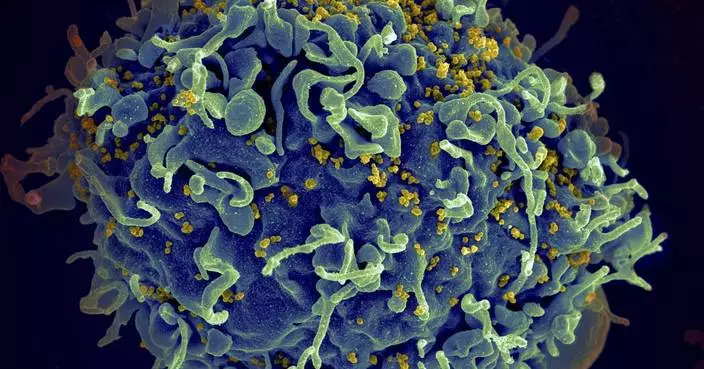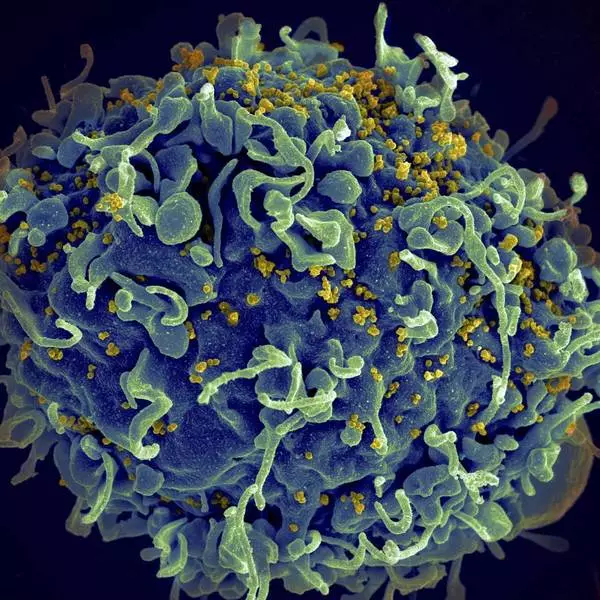BERLIN (AP) — An independent experts commission recommended Monday that abortion in Germany should no longer fall under the country's penal code and be made legal during the first 12 weeks of pregnancy.
Currently, abortion is considered illegal in Germany but not punishable if a woman undergoes mandatory counseling and a three-day wait period before she has the procedure.
Click to Gallery
German Health Minister Karl Lauterbach, third from left, Justice Minister Marco Buschmann, center and Minister for Family Affairs, Senior Citizens, Women and Youth, Lisa Paus, third from right, receive a report from Claudia Wiesemann, left, Liane Woerner,second from left, Friederike Wapler, second from right, and Frauke Brosius-Gersdorf, right, the members of the expert commission, tasked by the German government, to make a report about the current abortion law, in Berlin, Germany, Monday, April 15, 2024. The independent experts commission recommended that abortion in Germany should no longer fall under the country's penal code but be made legal during the first 12 weeks of pregnancy. (AP Photo/Markus Schreiber)
BERLIN (AP) — An independent experts commission recommended Monday that abortion in Germany should no longer fall under the country's penal code and be made legal during the first 12 weeks of pregnancy.
German Health Minister Karl Lauterbach, third from left, Justice Minister Marco Buschmann, center and Minister for Family Affairs, Senior Citizens, Women and Youth, Lisa Paus, third from right, receive a report from Claudia Wiesemann, left, Liane Woerner,second from left, Friederike Wapler, second from right, and Frauke Brosius-Gersdorf, right, the members of the expert commission, tasked by the German government, to make a report about the current abortion law, in Berlin, Germany, Monday, April 15, 2024. The independent experts commission recommended that abortion in Germany should no longer fall under the country's penal code but be made legal during the first 12 weeks of pregnancy. (AP Photo/Markus Schreiber)
From left: Claudia Wiesemann, Friederike Wapler, Frauke Brosius-Gersdorf and Liane Woerner, members of an expert commission tasked by the German government, present a report to decriminalize the current abortion law during a news conference in Berlin, Germany, Monday, April 15, 2024. The independent experts commission recommended that abortion in Germany should no longer fall under the country's penal code but be made legal during the first 12 weeks of pregnancy. (AP Photo/Markus Schreiber)
From left: Claudia Wiesemann, Friederike Wapler, Frauke Brosius-Gersdorf and Liane Woerner, members of an expert commission tasked by the German government, present a report to decriminalize the current abortion law during a news conference in Berlin, Geramny, Monday, April 15, 2024. The independent experts commission recommended that abortion in Germany should no longer fall under the country's penal code but be made legal during the first 12 weeks of pregnancy. (AP Photo/Markus Schreiber)
From left: Claudia Wiesemann, Friederike Wapler, Frauke Brosius-Gersdorf and Liane Woerner, members of an expert commission tasked by the German government, present a report to decriminalize the current abortion law during a news conference in Berlin, Germany, Monday, April 15, 2024. The independent experts commission recommended that abortion in Germany should no longer fall under the country's penal code but be made legal during the first 12 weeks of pregnancy. (AP Photo/Markus Schreiber)
Participants in the 'March for Life' rally stand with banners reading 'Every life is a gift', 'Life is life' and 'Euthanasia no thanks' in Munich, Germany, Saturday, April 13, 2024. An independent experts commission has recommended that abortion in Germany should no longer fall under the country’s penal code and be made legal during the first 12 weeks of pregnancy. Currently, abortion is considered illegal in Germany, but not punishable if a woman undergoes mandatory counseling and a three-day wait period before she has the procedure. (Uwe Lein/dpa via AP)
Germany's progressive government coalition of Chancellor Olaf Scholz’ Social Democrats, the Greens and the pro-business Free Democrats, had tasked the experts commission a year ago to look into the issue of abortion, which has been a hotly debated topic over decades.
Germany's approach to abortion has been more restrictive than in many other European countries. Some German women have traveled to neighboring countries such as the Netherlands — especially during later phases of their pregnancies when abortion is considered completely illegal in Germany except for very grave cases — to have abortions there.
Other European countries are in very different places in their approach to abortion. France, for example, inscribed the guaranteed right to abortion in its constitution last month, in a world first and a powerful message of support to women around the globe. Meanwhile, Poland's parliament held a long-awaited debate last week on liberalizing the country’s law, which is more restrictive than Germany's, although many women terminate pregnancies at home with pills mailed from abroad.
While the German commission's recommendation for the government to decriminalize abortion is non-binding, it is likely to heat up discussion over the issue in the country again. It could eventually also lead to the current regulation being reformed by parliament, but at this point it is not clear if and when that would happen.
“Our recommendation is to move away from this illegality and to label abortion in the early stages of pregnancy as legal," Frauke Brosius-Gersdorf, a law professor who is a member of the commission, told reporters in Berlin.
“This is not simply a formality, but you can imagine that it makes a big difference to the women concerned, those who are in the situation of considering whether to request an abortion, whether what they are doing is wrong or right,” she added.
Many women who have had abortions in Germany have described the mandatory counseling as humiliating, while others have said it helped them in their decision-making.
In addition to the tricky legal status of abortions in Germany, the experts also pointed out that in recent years, the number of physicians willing to perform an abortion in the country has gone down and that it's been more difficult for women to find a doctor in their region to help them.
The commission said that if the government decides to make abortion legal during the first 12 weeks, it should also ensure that women wishing to have a termination have quick and easy access to organizations and doctors providing it.
Currently, about 10% of physicians performing the medical intervention have faced criminal charges, though they are almost never found guilty.
The Catholic Church, one of the main opponents of liberalizing abortion regulations in Germany, quickly condemned the commission's recommendations.
“The commission is considering legalizing abortion in the early stages of pregnancy. This would mean the end of a clear concept of life protection," said Irme Stetter-Karp, the president of the powerful lay group Central Committee of German Catholics.
“Human dignity exists from the very beginning,” she added, calling the proposal “unacceptable.”
In addition to its recommendations for the first 12 weeks of pregnancy, the commission said that for the middle phase of pregnancy, it should be up to lawmakers to decide whether and for how long an abortion should be legal, while in the last trimester, abortions should not be allowed unless there is a strong medical or social reason.
“The shorter the pregnancy, the more likely an abortion is permissible; and the more advanced the gestational age, the more important the needs of the unborn child are,” the commission members said in a summary of their report, which they handed over to government ministers later on Thursday.
German Health Minister Karl Lauterbach said the report's “scientific expertise is a major help in answering the complex ethical questions on reproductive self-determination and reproductive medicine.”
Lauterbach warned everyone not to use the publication of the report as a trigger to heat up the discussion about the legitimacy of abortion again.
“What we don’t need in Germany is another debate that divides society," the minister added. "That’s why I appeal to everyone to react objectively, to discuss things objectively, to avoid slipping into an ideological discussion.”
He said the government would also discuss the report in detail and share it with parliament.

From left: German Minister for Family Affairs, Senior Citizens, Women and Youth, Lisa Paus, Health Minister Karl Lauterbach and Justice Minister Marco Buschmann attend a news conference following the presentation of a report an expert commission, tasked by the German government, to decriminalise the current abortion law, in Berlin, Monday, April 15, 2024. The independent experts commission recommended that abortion in Germany should no longer fall under the country's penal code but be made legal during the first 12 weeks of pregnancy. (AP Photo/Markus Schreiber)

German Health Minister Karl Lauterbach, third from left, Justice Minister Marco Buschmann, center and Minister for Family Affairs, Senior Citizens, Women and Youth, Lisa Paus, third from right, receive a report from Claudia Wiesemann, left, Liane Woerner,second from left, Friederike Wapler, second from right, and Frauke Brosius-Gersdorf, right, the members of the expert commission, tasked by the German government, to make a report about the current abortion law, in Berlin, Germany, Monday, April 15, 2024. The independent experts commission recommended that abortion in Germany should no longer fall under the country's penal code but be made legal during the first 12 weeks of pregnancy. (AP Photo/Markus Schreiber)

From left: Claudia Wiesemann, Friederike Wapler, Frauke Brosius-Gersdorf and Liane Woerner, members of an expert commission tasked by the German government, present a report to decriminalize the current abortion law during a news conference in Berlin, Germany, Monday, April 15, 2024. The independent experts commission recommended that abortion in Germany should no longer fall under the country's penal code but be made legal during the first 12 weeks of pregnancy. (AP Photo/Markus Schreiber)

From left: Claudia Wiesemann, Friederike Wapler, Frauke Brosius-Gersdorf and Liane Woerner, members of an expert commission tasked by the German government, present a report to decriminalize the current abortion law during a news conference in Berlin, Geramny, Monday, April 15, 2024. The independent experts commission recommended that abortion in Germany should no longer fall under the country's penal code but be made legal during the first 12 weeks of pregnancy. (AP Photo/Markus Schreiber)

From left: Claudia Wiesemann, Friederike Wapler, Frauke Brosius-Gersdorf and Liane Woerner, members of an expert commission tasked by the German government, present a report to decriminalize the current abortion law during a news conference in Berlin, Germany, Monday, April 15, 2024. The independent experts commission recommended that abortion in Germany should no longer fall under the country's penal code but be made legal during the first 12 weeks of pregnancy. (AP Photo/Markus Schreiber)

Participants in the 'March for Life' rally stand with banners reading 'Every life is a gift', 'Life is life' and 'Euthanasia no thanks' in Munich, Germany, Saturday, April 13, 2024. An independent experts commission has recommended that abortion in Germany should no longer fall under the country’s penal code and be made legal during the first 12 weeks of pregnancy. Currently, abortion is considered illegal in Germany, but not punishable if a woman undergoes mandatory counseling and a three-day wait period before she has the procedure. (Uwe Lein/dpa via AP)
Three women were diagnosed with HIV after getting “vampire facial” procedures at an unlicensed New Mexico medical spa, the Centers for Disease Control and Prevention said in a report last week, marking the first documented cases of people contracting the virus through cosmetic services using needles.
Federal health officials said in a new report that an investigation from 2018 through 2023 into the clinic in Albuquerque, VIP Spa, found it apparently reused disposable equipment intended for one-time use, transmitting HIV to clients through its services via contaminated blood.
Vampire facials, formally known as platelet-rich plasma microneedling facials, are cosmetic procedures intended to rejuvenate one’s skin, making it more youthful-looking and reducing acne scars and wrinkles, according to the American Academy of Dermatology.
After a client's blood is drawn, a machine separates the blood into platelets and cells.
The plasma is then injected into the client's face, either through single-use disposable or multiuse sterile needles.
Vampire facials have gained popularity in recent years as celebrities such as Kim Kardashian have publicized receiving the procedure.
HIV transmission via unsterile injection is a known risk of beauty treatments and other services, officials say.
Despite this, the Academy says vampire facials are generally safe.
Health officials say spa facilities that offer cosmetic injection services should practice proper infection control and maintain client records to help prevent the transmission of bloodborne pathogens such as HIV.
The New Mexico Department of Health was notified during summer 2018 that a woman with no known HIV risk factors was diagnosed with an HIV infection after receiving the spa's vampire facial services that spring.
During the investigation, similar HIV strains were found among three women, all former clients of the spa. Evidence suggested that contamination from services at the spa resulted in the positive HIV infection tests for these three patients, according to the CDC report.
Another woman, who also received services at the spa, and her male sexual partner, who did not go to the spa, were both found to have a close HIV strain as well, but the HIV diagnoses for these two patients “were likely attributed to exposures before receipt of cosmetic injection services," the CDC said.
Evidence suggested that contamination from services at the spa resulted in the positive HIV infection tests for the other three patients.
Health officials found equipment containing blood on a kitchen counter, unlabeled tubes of blood and injectables in the refrigerator alongside food and unwrapped syringes not properly disposed of. The CDC report said that a steam sterilizer, known as an autoclave — which is necessary for cleaning equipment that is reused — was not found at the spa.
Through the New Mexico Department of Health's investigation, nearly 200 former clients of the spa, and their sexual partners, were tested for HIV, and no additional infections were found.
According to the CDC, free testing remains available for those who previously frequented the spa.
The former owner of VIP Spa, Maria de Lourdes Ramos de Ruiz, pleaded guilty in 2022 to five felony counts of practicing medicine without a license, including conducting the unlicensed vampire facials.
The New Mexico Attorney General's office said Ramos de Ruiz also did illegal plasma and Botox-injection procedures.
According to prosecutors, inspections by state health and regulation and licensing departments found the code violations, and the spa closed in fall 2018 after the investigation was launched.
Ramos de Ruiz was sentenced to 7 1/2 years, with four years being suspended on supervised probation, 3 1/2 years time in prison and parole, according to court documents.
Raul A. Lopez, attorney for Ramos de Ruiz, did not immediately respond to requests for comment.
Alexa St. John is an Associated Press climate solutions reporter. Follow her on X, formerly Twitter, @alexa_stjohn. Reach her at ast.john@ap.org.

'Vampire facials' were linked to cases of HIV. Here's what to know about the beauty treatment

'Vampire facials' were linked to cases of HIV. Here's what to know about the beauty treatment

FILE - This electron microscope image made available by the U.S. National Institutes of Health shows a human T cell, in blue, under attack by HIV, in yellow, the virus that causes AIDS. Three women who were diagnosed with HIV after getting “vampire facial” procedures at an unlicensed New Mexico medical spa are the first believed to have contracted the virus through a cosmetic procedure using needles, according to federal health officials. (Seth Pincus, Elizabeth Fischer, Austin Athman/National Institute of Allergy and Infectious Diseases/NIH via AP, File)
























